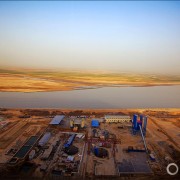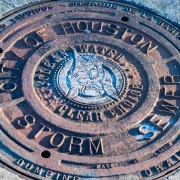2012 Election Results: U.S. Voters Favor Water
Yesterday, American voters in many states and cities around the nation supported hundreds of millions of dollars in water infrastructure investment.
By Brett Walton
Circle of Blue
If any conclusion can be drawn from the results of disparate water-related initiatives on state and local ballots yesterday, it is this: voters want a voice in decisions that directly affect their health and their wallets.
Voters in Santa Cruz secured a right to vote on any future desalination plants; those in Asheville, North Carolina, said they do not want the city’s water and sewer system sold off; and residents in Mansfield, Ohio, and Longmont, Colorado, voted to ban the disposal of drilling wastewater within city limits.
At the same time, the three state bond measures — in Maine, Oklahoma, and Rhode Island — to fund water and sewer infrastructure all passed, opening hundreds of millions of dollars for investment.
Some of the initiatives will likely face legal challenges. That is because the issues that voters grappled with — public health, drinking water, oil and gas development, and environmental protections — represent the most vital and contentious topics of today.
Don’t Drain It
For now, Hetch Hetchy Valley in Yosemite National Park will remain submerged. More than 77 percent of voters in San Francisco voted against spending $US 8 million to study how the city would replace its primary drinking water reservoir.
Residents of Santa Cruz, California, like those in Marin County in the 2010 election, said they want a voice in their city’s water future. They voted by a wide margin, 71 percent to 29 percent, to approve a measure that gives citizens the right to vote on whether the city should build a desalination plant that would produce 9.5 million liters (2.5 million gallons) of fresh water per day.
A dentist-sponsored initiative to fluoridate the drinking water in Wichita, Kansas, failed, with 59 percent opposed.
By a narrow 110-vote margin, Aspen, Colorado, rejected a measure to move forward with a controversial hydroelectric project, The Aspen Times reports. The city, however, is not bound by the vote.
Voters in Mansfield, Ohio, showed strong support for a charter amendment that would allow the city to ban underground disposal of wastewater from the gas and oil drilling process called hydraulic fracturing, also known as fracking. By a margin of 63 percent to 37 percent, Mansfield joins three other Ohio municipalities — Cincinnati, Niles, and Yellow Springs — that have banned injection wells.
Likewise, the town of Longmont, Colorado, voted 60 percent in favor of a ban on hydraulic fracturing and the storage of fracking waste within city limits.
In Asheville, North Carolina, voters were faced with this question: should the city sell or lease its water treatment and water distribution system, a transaction that the state legislature might force them to make. Voters were overwhelmingly in favor of maintaining local control — 85 percent voted no.
Broad Support for Water Bonds
The town of Wauconda, Illinois, will issue $US 41 million in bonds to extend and improve the pipeline system to deliver water from Lake Michigan. The measure passed with 65 percent in favor.
Voters in Rhode Island supported new investment in water and sewer infrastructure. Some 73 percent of voters approved two bond issues: up to $US 12 million for wastewater treatment projects and up to $US 8 million for drinking water infrastructure.
In Maine, a $US 7.9 million water and sewer bond issue passed with 63 percent voting in favor.
A bond measure in Oklahoma also passed, but by a narrower margin. Unofficially, just over 56 percent of voters gave the state’s water board the authority to issue up to $US 300 million in bonds for water and sewer projects.
Brett writes about agriculture, energy, infrastructure, and the politics and economics of water in the United States. He also writes the Federal Water Tap, Circle of Blue’s weekly digest of U.S. government water news. He is the winner of two Society of Environmental Journalists reporting awards, one of the top honors in American environmental journalism: first place for explanatory reporting for a series on septic system pollution in the United States(2016) and third place for beat reporting in a small market (2014). He received the Sierra Club’s Distinguished Service Award in 2018. Brett lives in Seattle, where he hikes the mountains and bakes pies. Contact Brett Walton










Leave a Reply
Want to join the discussion?Feel free to contribute!